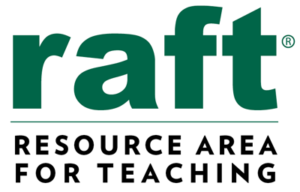Memory Aerobics
Students can use a variety of these quick and fun games to practice observation and memory skills.
Standards
Idea Sheets are cross-referenced to subjects listed in the Common Core, Next Generation Science Standards, and California Content Standards.
Science and Engineering Practices: 1. Asking Questions and Defining Problems 2. Developing and Using Models 3. Planning and Carrying Out Investigations 4. Analyzing and Interpreting Data 5. Using Mathematics and Computational Thinking 6. Constructing Explanations and Designing Solutions 7. Engaging in Argument from Evidence 8. Obtaining, Evaluating, and Communicating Information ||Next Generation Science Standards||Kindergarten||Science and Engineering Practices|||Science and Engineering Practices: 1. Asking Questions and Defining Problems 2. Developing and Using Models 3. Planning and Carrying Out Investigations 4. Analyzing and Interpreting Data 5. Using Mathematics and Computational Thinking 6. Constructing Explanations and Designing Solutions 7. Engaging in Argument from Evidence 8. Obtaining, Evaluating, and Communicating Information ||Next Generation Science Standards||Grade 1||Science and Engineering Practices |||Science and Engineering Practices: 1. Asking Questions and Defining Problems 2. Developing and Using Models 3. Planning and Carrying Out Investigations 4. Analyzing and Interpreting Data 5. Using Mathematics and Computational Thinking 6. Constructing Explanations and Designing Solutions 7. Engaging in Argument from Evidence 8. Obtaining, Evaluating, and Communicating Information ||Next Generation Science Standards||Grade 2||Science and Engineering Practices|||Science and Engineering Practices: 1. Asking Questions and Defining Problems 2. Developing and Using Models 3. Planning and Carrying Out Investigations 4. Analyzing and Interpreting Data 5. Using Mathematics and Computational Thinking 6. Constructing Explanations and Designing Solutions 7. Engaging in Argument from Evidence 8. Obtaining, Evaluating, and Communicating Information ||Next Generation Science Standards||Grade 3||Science and Engineering Practices|||Science and Engineering Practices: 1. Asking Questions and Defining Problems 2. Developing and Using Models 3. Planning and Carrying Out Investigations 4. Analyzing and Interpreting Data 5. Using Mathematics and Computational Thinking 6. Constructing Explanations and Designing Solutions 7. Engaging in Argument from Evidence 8. Obtaining, Evaluating, and Communicating Information ||Next Generation Science Standards||Grade 4||Science and Engineering Practices|||Science and Engineering Practices: 1. Asking Questions and Defining Problems 2. Developing and Using Models 3. Planning and Carrying Out Investigations 4. Analyzing and Interpreting Data 5. Using Mathematics and Computational Thinking 6. Constructing Explanations and Designing Solutions 7. Engaging in Argument from Evidence 8. Obtaining, Evaluating, and Communicating Information ||Next Generation Science Standards||Grade 5||Science and Engineering Practices|||Science and Engineering Practices: 1. Asking Questions and Defining Problems 2. Developing and Using Models 3. Planning and Carrying Out Investigations 4. Analyzing and Interpreting Data 5. Using Mathematics and Computational Thinking 6. Constructing Explanations and Designing Solutions 7. Engaging in Argument from Evidence 8. Obtaining, Evaluating, and Communicating Information ||Next Generation Science Standards||Middle School||Science and Engineering Practices
4.a. Observe common objects using the five senses.||CA Science||Grade Kindergarten||04. Investigation and Experimentation||4. Scientific progress is made by asking meaningful questions & conducting careful investigations. As a basis for understanding this concept, and to address the content of the other strands, students will develop questions & perform investigations.|||4.b. Describe the properties of common objects.||CA Science||Grade Kindergarten||04. Investigation and Experimentation||4. Scientific progress is made by asking meaningful questions & conducting careful investigations. As a basis for understanding this concept, and to address the content of the other strands, students will develop questions & perform investigations.|||4.b. Record observations and data with pictures, numbers, and/or written statements.||CA Science||Grade 1||04. Investigation and Experimentation||4. Scientific progress is made by asking meaningful questions and conducting careful investigations. As a basis for understanding this concept and addressing the content in the other three strands, students should develop their own questions and perform investigations. Students will:|||4. Scientific progress is made by asking meaningful questions and conducting careful investigations. As a basis for understanding this concept and addressing the content in the other three strands, students should develop their own questions and perform investigations. Students will:||CA Science||Grade 2||04. Investigation and Experimentation|||5.a. Repeat observations to improve accuracy, and know that the results of similar scientific investigations seldom turn out exactly the same because of differences in the things being investigated, methods used, or uncertainty in the observation.||CA Science||Grade 3||04. Investigation and Experimentation||5. Scientific progress is made by asking meaningful questions & conducting careful investigations. As a basis for understanding this concept, and to address the content of the other strands, students will develop questions and perform investigations.|||6.a. Differentiate observation from inference (interpretation), and know that scientists’ explanations come partly from what they observe and partly from how they interpret their observations.||CA Science||Grade 4||04. Investigation and Experimentation||6. Scientific progress is made by asking meaningful questions & conducting careful investigations. As a basis for understanding this concept, and to address the content of the other strands, students will develop questions & perform investigations.|||6. Scientific progress is made by asking meaningful questions and conducting careful investigations. As a basis for understanding this concept and addressing the content in the other three strands, students should develop their own questions and perform investigations. Student will:||CA Science||Grade 5||04. Investigation and Experimentation|||7. Scientific progress is made by asking meaningful questions and conducting careful investigations. As a basis for understanding this concept and addressing the content in the other three strands, students should develop their own questions and perform investigations. Students will: ||CA Science||Grade 6||07. Investigation and Experimentation
- Physical Science
- Pre-K
- Grades K-2
- Grades 3-5
- Grades 6-8
- Science
